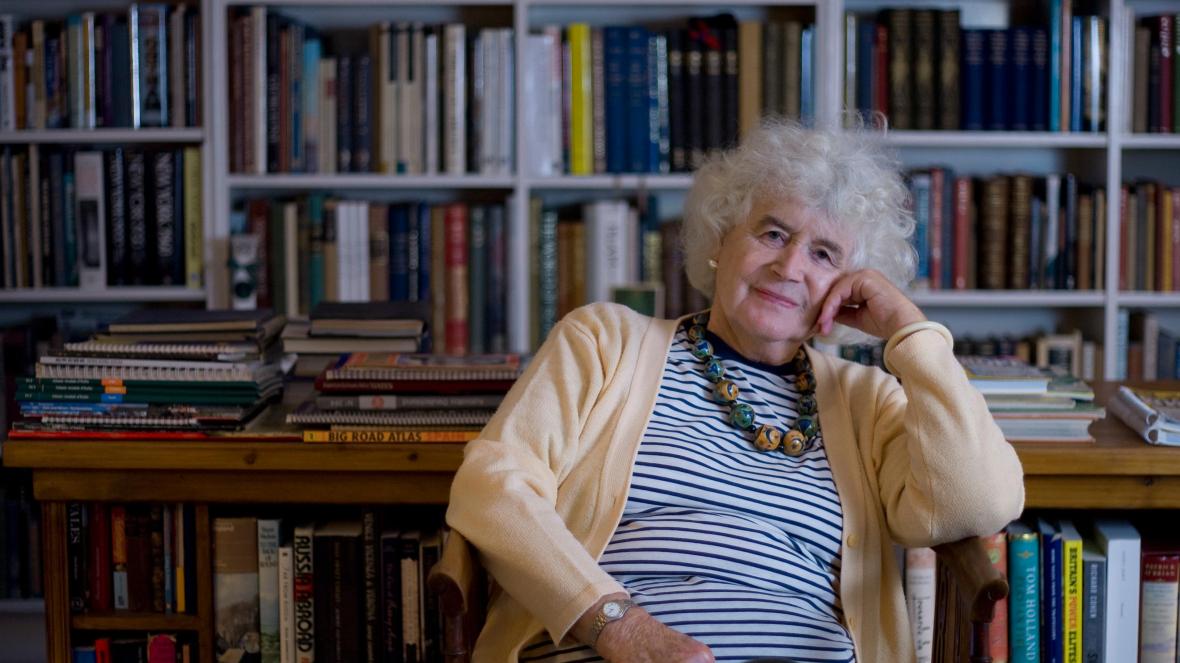by Reg Green

The death on November 20 of Jan Morris, called punctiously by the English newspaper The Times. the fifteenth best British writer since World War II, has led to a flood of admiring comment and the full panoply of obituaries. Anyone interested in what a full life is should read the details. Here I can only attempt a few personal words.
Although I wrote for the main British papers about economics, jazz, sports — and even obits — what I enjoyed most was exploring new places — among them hiking in Iceland, the mountains of Ethiopia, tramping the empty northwest coast of Ireland — by adding on side trips to wherever the newspaper sent me and trying to convey what they were like to people who like me until a few days before had only imagined them from books.
They had one thing in common: the places were never like what I expected — and I wanted to express my surprise and delight. My great good fortune was that there right in front of me, in the same newspaper I worked for, The Guardian in England, was the world’s best practitioner in exactly that field.
Not that I ever pretended to be other than an earthbound version of the formidably erudite, imaginative and eloquent world traveler. But he (as he was in those days before his sensational sex change) gave me an ideal and even now seventy years after that first acquaintance when I find myself almost ready to give up fighting to make some words fit into a space too small for them, I often think to myself: “Jan Morris wouldn’t give up.”
Not long ago I read again in her ever-fresh trilogy of the British Empire in the 19th century her account of the horrifying retreat of the British army in 1842 — the best in the world at that time — from Kabul to the safety of India in which helpless soldiers, bowed down under the weight of the equipment that had previously subdued Afghanistan were picked off one by one and slaughtered by laughing boys — only one man of the 16,000 survived — and marveled that a prosaic chapter in my school history book had been turned into an unforgettable story.
She saw the world as a glorious pageant of history and geography and made all her readers see it that way too. Yet after all that splendor death came to her in a mean way: weeks in a hospital ward unable to be visited by any of the famous people who were yearning to remind her of the glory days and sustained by a daily letter from her loving son, Twm. I am forcing that picture from my mind and replacing it with one of the journalist, still a man at the time, who was part of the first successful climb of Mt. Everest and who overcame fierce winds that tore paper from his typewriter, whose fingers were always cold, whose head was always aching but who still wrote heroic dispatches that thrilled the world with the most famous of all mountain ascents.
What a man! What a woman! And what a consummate writer!
- Like
- Digg
- Tumblr
- VKontakte
- Buffer
- Love This
- Odnoklassniki
- Meneame
- Blogger
- Amazon
- Yahoo Mail
- Gmail
- AOL
- Newsvine
- HackerNews
- Evernote
- MySpace
- Mail.ru
- Viadeo
- Line
- Comments
- SMS
- Viber
- Telegram
- Subscribe
- Facebook Messenger
- Kakao
- LiveJournal
- Yammer
- Edgar
- Fintel
- Mix
- Instapaper
- Copy Link







